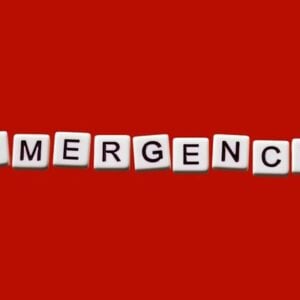The Board of Directors of the African Development Bank has approved a $17 million grant to support recovery and resilience-building in Mozambique’s conflict-affected Cabo Delgado province. The grant will fund the Resilient Investment for Socio-Economic Empowerment, Peace, and Security (RISE-PS) Project, which targets economic empowerment as a means to address fragility. The project aims to create 24,000 jobs, with 60% reserved for youth (ages 18–35) and 50% for women. In total, more than 100,000 individuals are expected to benefit.
Cabo Delgado has experienced violent extremist attacks since 2017, resulting in over 4,500 deaths and displacing more than one million people. Nearly 5,000 small businesses have been destroyed, and youth unemployment is at 25%, with 35% of young women neither working nor in education or training. The RISE-PS project seeks to reverse these trends by positioning youth as peacebuilding agents through vocational training, entrepreneurship, and employment opportunities.
A key feature of the project is the creation of a Peace and Security Investment Hub, managed by Mozambique’s Northern Integrated Development Agency (ADIN). This hub will coordinate development across the region and facilitate public and private investment. Community involvement in planning and implementing infrastructure projects will be prioritized to ensure that local needs are addressed.
The project includes the rehabilitation of 150 community facilities—such as 30 schools, 45 youth centers, 14 health posts, 10 rural markets, and 33 water systems—creating immediate employment for 4,500 vulnerable youth and women. Additionally, 9,200 individuals will receive training in market-driven vocational skills. Grants will be awarded to 2,000 women- and youth-led enterprises to revive destroyed businesses, and 5,400 micro-enterprises will be supported for growth.
A climate-smart SME village will be constructed within the Afungi Industrial Hub to host 100 small and medium-sized enterprises. It will feature modern infrastructure, including warehouses, workshops, and incubation centers. The project will also partner with private sector companies, such as TotalEnergies and ExxonMobil, to provide 1,055 youth with internships, aiming for a 70% permanent job placement rate.
The total value of the RISE-PS project is $28 million. It is co-financed by the African Development Bank ($17 million through its Transition Support Facility), UNDP ($4.2 million), Germany ($2.4 million), private sector partners ($3.1 million), and the Government of Mozambique ($1.3 million). The SME village will be led by MozParks, which has previously attracted $4 billion in investments and generated 12,000 jobs nationwide.
Designed with a conflict-sensitive lens, the project addresses the root causes of extremism. Research indicates that lack of economic opportunity drives 40% of young men to join rebel groups. The project also recognizes the additional vulnerabilities faced by women, including limited access to education and high rates of gender-based violence.
Implementation of RISE-PS will begin on September 1, 2025, and run through August 2029. The Government of Mozambique will lead implementation, with UNDP as the main implementing partner. ADIN will serve as the executing agency, with enhanced capacity to manage development coordination in northern Mozambique, a region home to 11.6 million people.
Improved security conditions and a decrease in the number of internally displaced persons from over one million to 635,000 offer a unique window for recovery and investment. The project aligns with multiple strategic frameworks, including Mozambique’s National Development Strategy (2025–2044), the African Union’s Agenda 2063, and the Sustainable Development Goals—particularly SDGs 1 (No Poverty), 4 (Quality Education), 5 (Gender Equality), and 8 (Decent Work and Economic Growth).
It is also in line with the African Development Bank’s Strategy for Addressing Fragility and Building Resilience (2022–2026), its Country Strategy Paper for Mozambique (2023–2028), its Ten-Year Strategy (2024–2033), and the Jobs for Youth in Africa Strategy (2016–2025), which aims to create 25 million jobs and impact 50 million youth across the continent.







